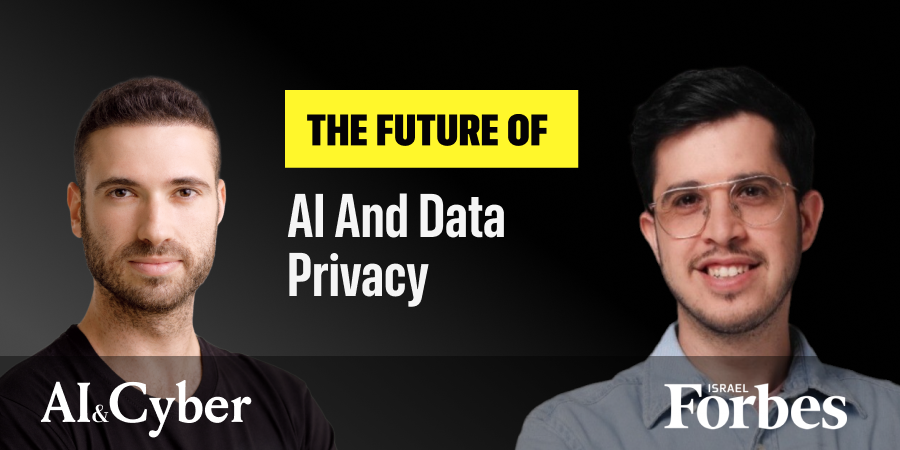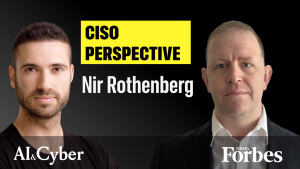The rapid adoption of artificial intelligence is reshaping cybersecurity, creating remarkable opportunities alongside unprecedented challenges. Recently, in a discussion with Gal Ringel, CEO and Co-Founder of Mine, I gained critical perspectives on AI’s evolving impact on data privacy.
Gal’s experiences—from his service in Israel’s Unit 8200 to roles in venture capital—uniquely position him to navigate the complexities AI introduces into cybersecurity. Reflecting on our shared backgrounds, particularly my own time in Unit 8200, I relate strongly to Gal’s observation about the unit’s formative influence: “They taught us that nothing was impossible if you had resources and time—so it built tremendous self-confidence.” This mindset is crucial in cybersecurity innovation and is something I’ve also carried forward in my entrepreneurial journey with Clarity.
Our conversation highlighted significant concerns surrounding AI-powered tools such as Grammarly, which, despite their benefits, rely heavily on user-generated data. Users frequently underestimate that their sensitive inputs can feed into AI training datasets, complicating compliance with regulations such as GDPR.
What struck me during our discussion was Gal’s emphasis on how many companies still rely on manual, outdated methods for data mapping and classification, despite the clear regulatory risks. He noted, “It’s astonishing to see such outdated processes still in place, given the stakes and volume of sensitive information.” According to IBM’s latest report, the average data breach cost has now reached approximately $4.45 million, underscoring the need for innovative, AI-driven solutions.
Mine’s approach—leveraging advanced AI technologies for data mapping and classification—represents a forward-thinking strategy to address these challenges. Their innovative “smart sampling” method intelligently analyzes data subsets, significantly optimizing resource usage and compliance accuracy.
Gal also previewed Mine’s upcoming launch of a “privacy AI agent,” a pioneering solution aimed at automating complex compliance tasks traditionally handled manually. This proactive innovation aligns with the evolving needs of organizations striving to manage data privacy effectively.
Our discussion reinforced my belief in the necessity of shifting cybersecurity and privacy management from reactive measures to proactive, AI-driven strategies. Organizations must have detailed visibility into data flows, especially as AI continually generates new data streams.
It is increasingly clear that organizations cannot delay adopting AI-driven privacy solutions. The future of data privacy belongs to organizations that proactively leverage AI, turning it into a strategic advantage rather than merely a compliance measure.
As leaders and innovators, we stand at an AI crossroads, challenged to redefine data privacy management. Organizations that swiftly adopt sophisticated AI solutions will mitigate risks and secure a competitive edge.
The time to act is now—hesitation only increases vulnerability.
Michael Matias is the CEO and Co-Founder of Clarity, an AI-powered cybersecurity startup backed by venture capital firms including Bessemer Venture Partners and Walden Catalyst. Clarity develops advanced AI technologies protecting organizations from sophisticated phishing attacks and AI-generated social engineering threats, including deepfakes. Before founding Clarity, Matias studied Computer Science with a specialization in AI at Stanford University and led cybersecurity teams in Unit 8200 of the Israel Defense Forces. Forbes Israel recognized him early on, naming him to the exclusive 18Under18 list in 2013 and the Forbes 30Under30 list thereafter. Matias authored the book Age is Only an Int and hosts the podcast 20MinuteLeaders





